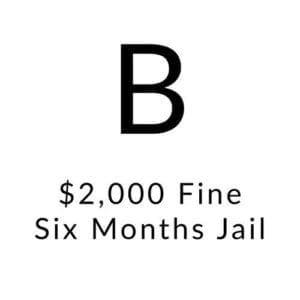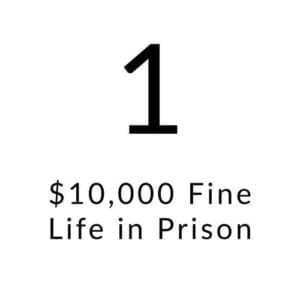Top Dallas Prostitution Lawyer | Solicitation Defense
Dallas Prostitution Lawyer, Serving Dallas and Surrounding Areas
Prostitution may be the world’s oldest profession, but it’s still a crime police love to crack down on in Texas. Online prostitution stings and undercover operations at strip clubs and massage parlors are commonplace. In fact, people who solicit a prostitute – so-called “Johns” – face harsher punishment than the prostitutes themselves.
A conviction for prostitution or soliciting a prostitute can lead to jail time, a fine, and a permanent criminal record with a stigma. That’s why it’s so important to contact an experienced Dallas prostitution lawyer if you have been arrested and are facing charges.
In this article, our defense team is going to explain the law, the punishment and possible defenses for prostitution, solicitation and promotion. We have successfully represented dozens of people accused of sex crimes and we can help you too. Call for a free consultation with a top Dallas prostitution lawyer today.
What are the laws against prostitution in Texas?
In Texas, the law makes a distinction between the individual who offers sex for money (prostitute); the individual who seeks or solicits the services of a prostitute (john); and the individual who manages or engages in the promotion of prostitution (pimp or madam). We break down all of them below.
What is prostitution in Texas? (Prostitutes)
Under Texas Penal Code 43.02, a person commits prostitution if he or she “knowingly offers or agrees to receive a fee from another to engage in sexual conduct.” It’s important to point out that the law does not require that the parties actually engage in sex; it is enough that they agree to do so.
The punishment for prostitution in Texas is a Class B misdemeanor, punishable by up to 180 days in jail and a fine of up to $2000. However, if you have a previous conviction for prostitution, the punishment is increased to a Class A misdemeanor, punishable by up to one year in jail and a fine of up to $4000.

What is the solicitation of prostitution in Texas? (Johns)
Under Texas Penal Code 43.021, a person commits solicitation of prostitution if he or she “knowingly offers or agrees to pay a fee to another person for the purpose of engaging in sexual conduct.” As with prostitution, it is not necessary that the parties actually engage in sex; it is only important that they agree to do so. That’s why prostitution stings net so many arrests.
In Texas, people who solicit a prostitute – often referred to as “Johns” – now face harsher punishment than prostitutes. In September 2021, Texas became the first state to make solicitation or prostitution a felony. Here’s how solicitation is punished:

- First-time offenders face a state jail felony punishable by six months to two years in state jail and a maximum $10,000 fine.
- Defendants with a prior conviction for solicitation face a third-degree felony punishable by 2 to 10 years in prison and a maximum $100,000 fine.
- Defendants who solicit someone under 18 (or whom they believe to be under 18) is a second-degree felony punishable by 2 to 20 years in prison and maximum $10,000 fine.
Dallas prostitution lawyer Benson Varghese, a Board Certified Criminal Defense Lawyer, explains the new law in this video.
What is the promotion of prostitution? (Pimps and Madams)
Under Texas Penal Code 43.03, a person commits an offense if he or she:
- receives money or property in an agreement to participate in the proceeds of prostitution; or
- solicits another to engage in sexual conduct with a third party for compensation
Promotion of prostitution is a third-degree felony, punishable by 2 to 10 years in prison and a maximum $10,000 fine. However, the charge is elevated to a second-degree felony, punishable by 2 to 20 years in prison and a maximum $10,000 fine, if the person being promoted is younger than 18 (regardless of whether the defendant knew the age or not).
If the enterprise involves two or more prostitutes, the offense is “aggravated promotion of prostitution.” Aggravated promotion of prostitution is a first-degree felony punishable by 5 to 99 years in prison and a maximum $10,000 fine.
What is online promotion of prostitution?
Online promotion of prostitution is a relatively new law that was passed in 2019 in response to the growing trend of people using the internet – particularly websites like Backpage.com – to solicit prostitution.
Under section 43.031 of the Texas Penal Code, a person commits online promotion of prostitution if he or she:
- own, manages or operates an interactive computer service or information content provider with the intent to promote the prostitution of another person or facilitate another person to engage in prostitution or solicitation of prostitution.
Online promotion of prostitution is a third-degree felony punishable by 2 to 10 years in prison a maximum $10,000 fine. The punishment is elevated to a second-degree felony punishable by 2 to 20 years in prison if the defendant has previously been convicted of this offense before or if the person being promoted is under age 18.

If the online enterprise involves at least five people, the offense become “aggravated online promotion of prostitution” Aggravated online promotion of prostitution is a second-degree felony punishable by 2 to 20 years in prison. However, it can be bumped to a first-degree felony if the defendant has previously been convicted of this offense or if the person being promoted is under 18. A first-degree felony is punishable by 5 to 99 years in prison and a maximum $10,000 fine.
What is compelling prostitution?
Under section 43.05 of the Texas Penal Code, a person commits compelling prostitution if he or she:
- causes another by force, threat, coercion for fraud to commit prostitution; or
- causes a child younger than 18 to commit prostitution
Compelling prostitution also referred to as sex trafficking, is a first-degree felony punishable by 5 to 99 years in prison and a maximum $10,000 fine.

What are possible defenses to prostitution charges in Dallas?
To be convicted of any type of prostitution charge, the prosecution has to prove several elements beyond a reasonable doubt. An experienced Dallas prostitution lawyer will know what defenses apply to your case and can help you avoid a conviction and the potentially severe penalties that come with it. Some possible defenses to prostitution charges include:
- You did not have the intent to engage in sexual conduct for a fee.
- You were not aware that the person was a prostitute.
- The sex act was not going to occur for a fee.
- You were entrapped by law enforcement during a sting operation.
- Your constitutional rights were violated.
- You were forced to perform or promote an act of prostitution under duress.
These are just a few defense strategies that an experienced and skilled Dallas prostitution lawyer could put into play. Our team has handled every type of prostitution charge and has a proven record of exceptional results.
Speak to a Dallas prostitution lawyer today.
If you have been charged with prostitution or any related offense in Dallas, it is important that you speak to an experienced criminal defense lawyer as soon as possible. The consequences of a conviction can be severe, and you will need someone on your side who knows the intricacies of Texas law and who will fight for you. Call the law office of Varghese Summersett at 214-903-4000 today and speak to an experienced Dallas prostitution lawyer. We will handle your case with discretion and sensitivity and work tirelessly to achieve a favorable outcome.
